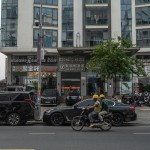From mines to construction projects to any sites where copper cables are found, criminals steal whatever they can, no matter how much or how little. So pervasive is its allure for a quick score or a big payday that the yearly losses negatively impact the country at all levels, from energy, to transportation and mining, according to a recent report by the Global Initiative Against Transnational Organized Crime (GI-TOC).
An irreplaceable commodity across several industries, copper is an excellent conductor with multiple uses; power generation, electricity transmission, and telecommunications are but a few of its energy applications. Meanwhile, its tensile strength—the force required to pull a structural object to its breaking point—is double that of aluminum, which is why it has seen extensive use in architecture for thousands of years.
Most importantly, however, is its renown as a reusable material whose performance doesn’t degrade when recycled. Throughout the 21st century, recycled copper has accounted for nearly a third of global supplies in use; South Africa alone trades roughly 150,000 tonnes of copper scrap worth R10 billion (US$545 million) every year.
But such opportunity for growth and expansion means that criminal interest for the soft metal is widespread, especially when buyers can purchase it stolen for a third of the price, according to GI-TOC.
The totals lost to theft can value in the hundreds of millions per industry, per year. In energy, for instance, the theft of copper intended for cables, overhead lines, and conductors cost electrical suppliers between R5 billion ($272 million) and R7 billion ($381 million) annually - which doesn’t include the additional R2 billion ($109 million) needed to replace the stolen metal.
This burden on the country’s capacity to supply electricity results in increased costs on utility companies, businesses, and service providers, which ultimately get passed onto the consumer. Energy rationing due to copper thefts from electrical substations can leave areas without power for days, GI-TOC said.
In 2021, Transnet Freight Rail, a South African rail transport company, reported that copper theft from its rail network had nearly doubled over the previous five years, an amount that totaled thousands of kilometers worth of cable. The resulting freight train cancellations necessitated the company invest billions in security and replacement copper that wouldn’t have otherwise been necessary.
For mining, the losses due to theft permeate beyond the value of the copper itself. Large scale projects suffer costly delays and security is constantly undermined as sites are ransacked.
In 2022, the CEO of one of the world's foremost producers of platinum said that, in the South African city of Rustenburg, “every single day there is at least one place that’s not working because of cable theft.”
It’s not only small-time thieves who are responsible for the grand scale larceny of the country’s copper reserves. Syndicates made up of dozens of individuals have the resources and funding necessary to steal bulk amounts and transport it offsite to black market dealers, GI-TOC said.
While some of the stolen copper filters through the black market and back into the country’s economy, a lot of it is ultimately exported to clients able to pay more. This problem is made worse by the fact that holes in the port industry and cases of customs fraud see the metal slip out undetected, either mislabeled or with the right people on the ground paid off.
By far the biggest buyer is China. In 2021, China acquired roughly 85% of all scrap metal exported out of South Africa.
Though that is not to say that importers are aware their purchases were procured illegally, Chinese triad groups reportedly have a strong interest and presence in South Africa. They are also well-integrated in local smuggling networks that siphon off the country’s natural resources, according to GI-TOC.



